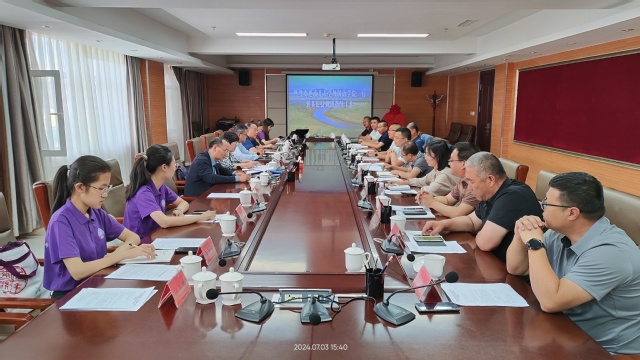
On July 3, Mu Xiangwang, Secretary of the Party Committee of Nankai University's School of Foreign Studies, led a delegation to Duolun County, Inner Mongolia, to hold an opening ceremony for rural working station by the name of Chinese path to modernization. The delegation included Li Min, Deputy Dean of the School of Foreign Studies, Zhang Wenzhong, Professor of English at Nankai University and the on-site director of the working station, as well as nearly ten other faculty members and students.
That afternoon, the delegation arrived at the Duolun County Government. County Party Committee Standing Member and Deputy County Chief Li Baoshan, along with Deputy County Chief Zhang Wenxing, extended a warm welcome to the group from Nankai University.
Zhang Wenxing provided an overview of Duolun County’s basic situation and its historical ties with Tianjin. He expressed the hope that through close cooperation, new vitality could be injected into the county's rural revitalization efforts.
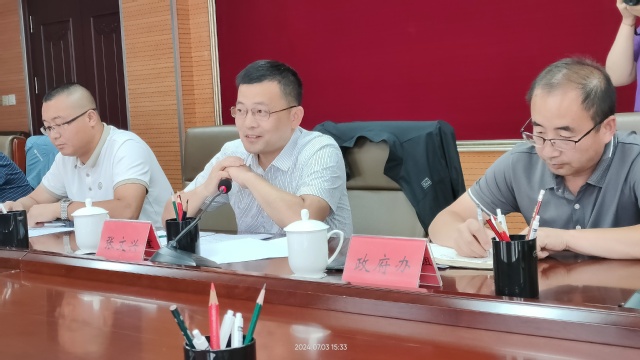
Mu Xiangwang introduced the "1+3+N" construction model of Nankai University’s rural working stations, as well as the School of Foreign Studies’ discipline development and talent cultivation methods.
Li Min emphasized that the school would offer support tailored to the actual needs of Duolun County, helping to promote local economic and educational development from the perspective of academic discipline advancement.
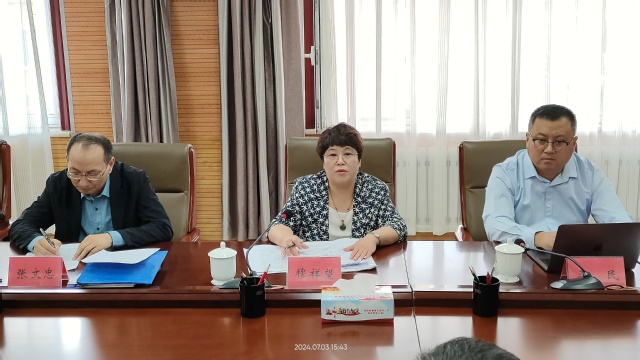
During the ceremony, the leaders of both sides jointly unveiled the signboard of the working station, and three directors of the station were presented with letters of appointment. Song Yang, a representative of Nankai University’s Inner Mongolia Alumni Association and General Manager of Duolun County Urban-Rural Construction Investment Group Co., Ltd., read out a congratulatory letter from the alumni association, which outlined the future development prospects of the workstation and encouraged Nankai faculty and students to dedicate to public interests, acquire all-round capability and actively support the construction of Duolun.
Following the ceremony, Zhang Wenzhong delivered an academic report titled "Nankai University and Rural Revitalization," highlighting the university's historical contributions to rural construction and economic development, along with an overview of the rural working stations established by the name of Chinese path to modernization.
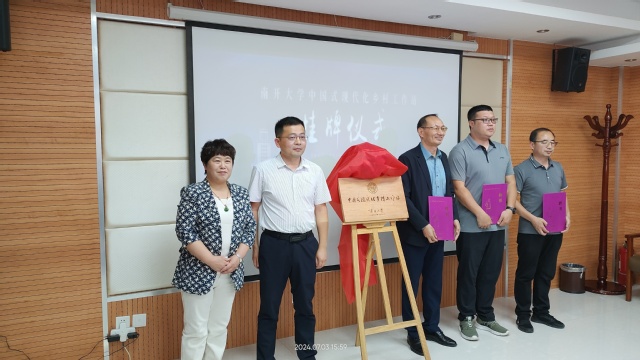
In the subsequent discussion session, participants conducted in-depth discussions on the topics of education, agriculture, economic development in Duolun County, and the role of universities in supporting rural revitalization. Representatives expressed the hope that the establishment of the workstation would be a catalyst for strengthening the guidance provided by Nankai’s faculty and students on local foreign language education. They also aimed to fully utilize Duolun County’s existing resources to develop new rural tourism and agritourism projects, creating distinctive regional brands.
The faculty and students of the School of Foreign Studies pledged to build a social practice base and labor education base in the area, based on preliminary research and in-depth fieldwork. They also committed to assisting in developing tourism plans that support local agricultural enterprises. Relying on Professor Zhang Wenzhong's "Empowerment and Capacity Building" teaching team, the school plans to carry out teaching and research activities in local primary and secondary schools to help improve the quality and efficiency of rural basic education.
On July 4, the delegation traveled to Caimu Mount Town, Duolun County, for another opening ceremony. Mu Xiangwang and Gao Ruwu, Secretary of the Party Committee of Caimu Mount Town, delivered speeches at the event.
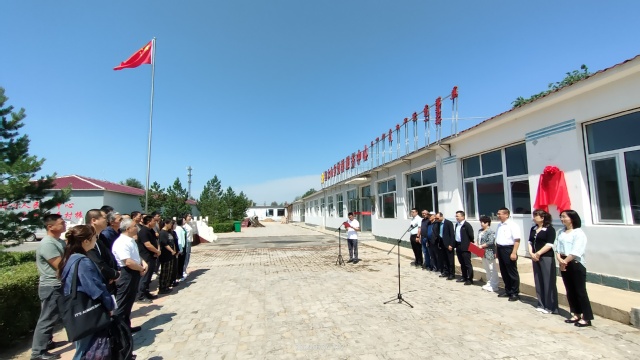

Following the ceremony, the faculty and students visited local primary and secondary schools, the Chahar Anti-Japanese Memorial Hall, the Shanxi Guild Hall, the Luan He River source, and other sites. They explored local cultural and natural resources that could contribute to rural development and carried out a variety of support activities.
It is expected that as the construction of the rural working stations deepens, the School of Foreign Languages will explore new paths and areas for school-local cooperation, further promoting green agricultural technology, integrating agricultural, cultural, and tourism development, and providing support for rural education and talent cultivation. Through the "Foreign Language + Research + Teaching + Practice" system, the school aims to leverage its disciplinary strengths to contribute to the broader goal of Chinese path to modernization.




